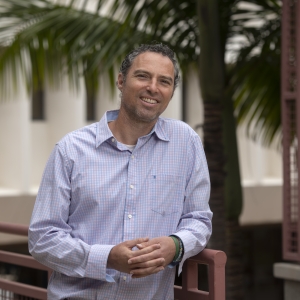UCI professor named to CDC committee on sexually transmitted infections
Source:

“STIs have reached epidemic proportions nationally and continue to rise. Our committee is charged with investigating the problem and recommending novel and implementable solutions,” said Sean Young, PhD, professor at the UCI School of Medicine.
Irvine, Calif. – October 15, 2019 – Sean Young, PhD, professor at the University of California Irvine School of Medicine and Donald Bren School of Information and Computer Sciences, has been appointed to the National Academies of Sciences, Engineering, and Medicine ad hoc committee to address the alarming increase in sexually transmitted infections (STIs). The Center for Disease Control (CDC) through the National Association of County and City Heath Officials requested the formation of the committee.
“STIs have reached epidemic proportions nationally and continue to rise. Our committee is charged with investigating the problem and recommending novel and implementable solutions,” said Young. “Solutions exist. We are optimistic about the CDC’s request for help that there will be resources and support to implement the committee’s solutions.”
The “Prevention and Control of Sexually Transmitted Infections in the United States” committee will examine the epidemiological dimensions of STIs in the United States and factors that contribute to the epidemic (changes in population demographics, sexual and other behaviors, social determinants), as well as changes in the understanding of the agents that cause STIs.
Additionally, the study will attempt to address the economic burden associated with STIs and review current public health strategies and programs to prevent and control STIs (including STI diagnostics, STI vaccines, STI monitoring and surveillance, and treatment. Barriers in the healthcare system and insurance coverage associated with the prevention and treatment of STIs will also be surveyed.
Young was appointed to the committee due to his work at UCI leveraging social and behavioral data to detect real-world problems. He applied insights from psychology to online behavior change interventions and saw social norms could be modified.
Young uses this approach to transform time-consuming and expensive community-based interventions into online variants that more efficiently reach the masses. By analyzing people’s behaviors, problems from these behaviors can quickly be detected and addressed. Working with public health officials, Young is now developing tools that mine social data to identify potential areas of disease outbreak, crime, and poverty. His expertise will be used to address the STI epidemic.
“We can now use technologies as a way of predicting and changing behavior, leading to positive and ethically delivered social change,” said Young.
